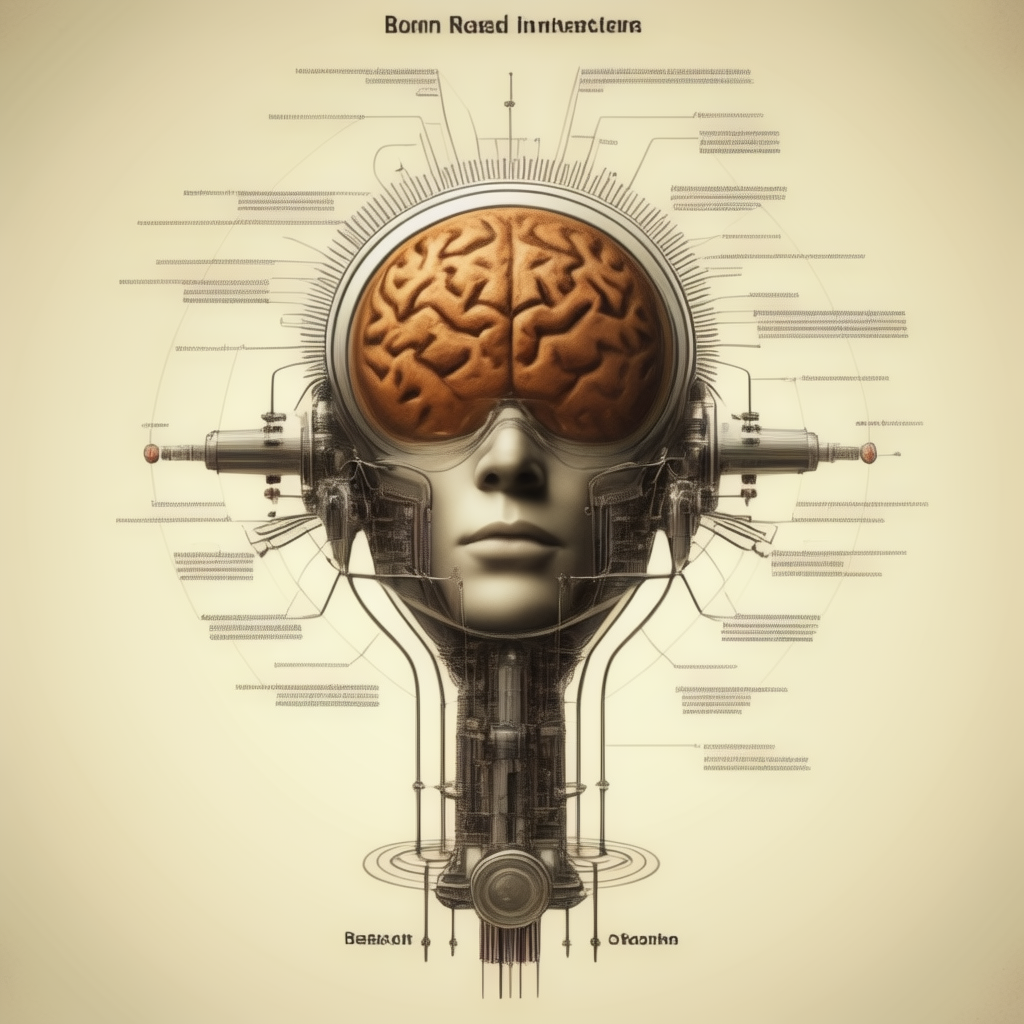LLM, or Large Language Models, represent a revolutionary advancement in artificial intelligence and natural language processing. These models have transformed the landscape of human-computer interaction, enabling machines to understand and generate human-like text with remarkable accuracy and fluency. In this blog post, we will explore the origins of  , its applications across various domains, the engineering efforts behind its development, and its pivotal role in the creation of ChatGPT.
, its applications across various domains, the engineering efforts behind its development, and its pivotal role in the creation of ChatGPT.
Origins of LLM:
The concept of Large Language Models can be traced back to the early days of artificial intelligence research, where scientists and researchers sought to develop systems capable of understanding and generating human language. However, it wasn’t until recent years that significant breakthroughs in machine learning and deep learning algorithms paved the way for the development of LLMs on a large scale.
One of the key milestones in the evolution of LLMs was the introduction of the Transformer architecture by Google researchers in their landmark paper “Attention is All You Need” in 2017. The Transformer architecture revolutionized natural language processing by introducing self-attention mechanisms that allowed models to capture long-range dependencies in text data more effectively.
Applications of LLM:
LLMs have a wide range of applications across various industries and domains, including:
- Natural Language Understanding: LLMs can comprehend and interpret human language with a high degree of accuracy, enabling applications such as sentiment analysis, text classification, and named entity recognition.
- Text Generation: LLMs have the ability to generate human-like text in response to prompts or queries, making them invaluable for tasks such as language translation, content generation, and dialogue systems.
- Information Retrieval: LLMs can process and analyze vast amounts of textual data to extract relevant information, facilitate search and retrieval tasks, and generate summaries or abstracts.
- Personal Assistants and Chatbots: LLMs serve as the underlying technology behind virtual assistants and chatbots, enabling natural and intuitive human-computer interaction in applications such as customer service, virtual agents, and personal assistants.
- Content Creation and Curation: LLMs can assist content creators and curators by generating ideas, providing suggestions, and automating repetitive tasks such as writing summaries, captions, or product descriptions.
Engineering Efforts behind LLM:
The development of LLMs involves a combination of advanced machine learning techniques, large-scale data processing, and computational infrastructure. Key engineering efforts include:
- Model Architecture: Designing and refining the architecture of LLMs to optimize performance, scalability, and efficiency while balancing computational resources and memory requirements.
- Training Data: Curating and preprocessing large-scale datasets of text data from diverse sources to train LLMs effectively and ensure robustness and generalization across different domains and languages.
- Training Procedure: Developing training algorithms and techniques to train LLMs on massive datasets efficiently using distributed computing frameworks and specialized hardware accelerators such as GPUs and TPUs.
- Fine-Tuning and Evaluation: Fine-tuning pre-trained LLMs on specific tasks or domains and evaluating their performance using standardized benchmarks and metrics to ensure high accuracy and reliability in real-world applications.
Role of LLM in ChatGPT:
LLMs play a central role in ChatGPT, a state-of-the-art conversational AI model developed by OpenAI. ChatGPT leverages the power of large-scale language models to generate human-like responses in conversational contexts, enabling natural and engaging interactions between users and AI systems.
ChatGPT incorporates advanced natural language understanding and generation capabilities, allowing it to understand context, infer meaning, and generate coherent and contextually relevant responses to user inputs. Through continuous learning and adaptation, ChatGPT can converse on a wide range of topics, provide information, answer questions, and engage users in meaningful dialogue.
Advanced Research and Development:
Big tech giants such as Microsoft, Facebook (now Meta), Google, Amazon, Netflix, and OpenAI are heavily invested in the research and development of Large Language Models (LLMs). These companies have dedicated teams of researchers, engineers, and data scientists working tirelessly to push the boundaries of AI and natural language processing.
Model Development:
In collaboration with academia and industry partners, tech giants are developing cutting-edge LLM architectures and algorithms that push the limits of performance, scalability, and efficiency. These models leverage advanced deep learning techniques, including self-attention mechanisms, multi-layer neural networks, and transformer architectures, to process and understand vast amounts of textual data with unprecedented accuracy and fluency.
Data Collection and Annotation:
Tech giants collect and curate massive datasets of text data from diverse sources, including websites, books, articles, and social media platforms. These datasets are meticulously annotated and preprocessed to ensure quality, relevance, and diversity, providing the foundation for training and fine-tuning LLMs on specific tasks and domains.
Training Infrastructure:
Building and training LLMs require significant computational resources and infrastructure. Tech giants invest in state-of-the-art data centers equipped with high-performance computing clusters, specialized hardware accelerators (such as GPUs and TPUs), and distributed computing frameworks (such as TensorFlow and PyTorch) to train LLMs efficiently at scale.
Fine-Tuning and Evaluation:
Tech giants employ sophisticated techniques for fine-tuning pre-trained LLMs on specific tasks or domains, such as language translation, sentiment analysis, and text summarization. This process involves adapting the parameters of the model to the target task and evaluating its performance using standardized benchmarks and metrics to ensure accuracy and reliability in real-world applications.
Deployment and Integration:
Once trained and validated, LLMs are deployed and integrated into various products and services across the tech giants’ ecosystems. These models power a wide range of applications, including virtual assistants, chatbots, search engines, recommendation systems, and content generation tools, enriching user experiences and driving business value.
Continuous Improvement:
Tech giants are committed to continuous improvement and refinement of LLMs through ongoing research, experimentation, and feedback loops. They actively collaborate with the academic community, participate in AI conferences and workshops, and publish research papers to share insights and advance the state-of-the-art in natural language processing.
Use Cases:
LLMs developed by tech giants serve a myriad of use cases across industries and domains, including:
- Natural language understanding and generation
- Language translation and localization
- Sentiment analysis and opinion mining
- Text summarization and abstraction
- Question answering and information retrieval
- Content recommendation and personalization
- Speech recognition and synthesis
- Conversational agents and virtual assistants
- Chatbots and customer support automation
- Text-based gaming and entertainment experiences
Ethical Considerations and Bias Mitigation:
Big tech giants are increasingly focused on addressing ethical considerations and mitigating bias in LLMs. They recognize the potential impact of AI technologies on society and are committed to ensuring that LLMs are developed and deployed responsibly. This includes efforts to identify and mitigate biases in training data, algorithms, and model outputs, as well as promoting transparency, fairness, and accountability in AI systems.
Privacy and Data Security:
Tech giants prioritize privacy and data security in the development and deployment of LLMs. They implement robust data protection measures, encryption protocols, and access controls to safeguard user data and ensure compliance with privacy regulations and standards. Additionally, they invest in research and development of privacy-preserving AI techniques, such as federated learning and differential privacy, to minimize the risk of unauthorized access or data breaches.
Multimodal and Multilingual Capabilities:
In addition to textual data, tech giants are exploring the integration of multimodal and multilingual capabilities into LLMs. This includes the ability to process and generate text, speech, images, and other modalities, as well as support for multiple languages and dialects. By incorporating multimodal and multilingual capabilities, LLMs can enhance their versatility, accessibility, and inclusivity, enabling more natural and expressive interactions across diverse cultural and linguistic contexts.
Domain-Specific Customization:
Tech giants are developing tools and techniques for domain-specific customization of LLMs to address the unique requirements and challenges of specific industries and applications. This involves fine-tuning pre-trained models on domain-specific data, incorporating domain-specific knowledge and terminology, and optimizing model performance for specialized tasks and use cases. Domain-specific customization enables LLMs to deliver tailored solutions that meet the unique needs of users in areas such as healthcare, finance, legal, and education.
User Experience and Interaction Design:
Tech giants are investing in user experience (UX) and interaction design to enhance the usability, intuitiveness, and effectiveness of LLM-powered applications and services. This includes designing intuitive user interfaces, providing context-aware suggestions and recommendations, and optimizing conversational flows to facilitate seamless and engaging interactions between users and LLMs. By prioritizing user experience and interaction design, tech giants aim to deliver intuitive and delightful experiences that empower users to accomplish their goals more effectively and efficiently.
Collaboration and Knowledge Sharing:
Tech giants actively collaborate with academic institutions, research organizations, and industry partners to advance the field of LLMs through knowledge sharing, collaboration, and open innovation. They participate in collaborative research projects, sponsor academic conferences and workshops, and contribute to open-source initiatives and communities. By fostering collaboration and knowledge sharing, tech giants accelerate the pace of innovation, drive collective learning, and amplify the impact of LLMs on society and industry.
Regulatory Compliance and Governance:
Tech giants prioritize regulatory compliance and governance in the development and deployment of LLMs. They work closely with regulatory authorities, policymakers, and industry stakeholders to ensure that LLMs adhere to applicable laws, regulations, and standards governing AI technologies. This includes compliance with data protection regulations (such as GDPR and CCPA), adherence to ethical guidelines and principles (such as the IEEE Ethically Aligned Design framework), and engagement in industry initiatives and standards-setting bodies.
Conclusion:
big tech giants are at the forefront of LLM research and development, driving innovation and pushing the boundaries of AI and natural language processing. Through collaboration, investment, and continuous improvement, these companies are harnessing the power of LLMs to create transformative products and services that enhance human-computer interaction, unlock new capabilities, and shape the future of technology. As LLMs continue to evolve and mature, we can expect to see even more groundbreaking advancements that revolutionize how we communicate, create, and interact with machines in the digital age.
In conclusion, LLMs represent a significant milestone in the field of artificial intelligence and natural language processing, with far-reaching implications for human-computer interaction, information processing, and content generation. The development of LLMs involves a combination of advanced machine learning techniques, large-scale data processing, and engineering efforts to optimize performance, scalability, and efficiency. LLMs such as ChatGPT exemplify the transformative potential of this technology, enabling more natural, intuitive, and personalized interactions between humans and machines. As LLMs continue to evolve and improve, we can expect to see further advancements in AI-driven applications and services that enhance productivity, creativity, and communication in the digital age.
In conclusion, big tech giants are committed to addressing a wide range of considerations and challenges in the development and deployment of LLMs, from ethical considerations and bias mitigation to privacy and data security, multimodal and multilingual capabilities, domain-specific customization, user experience and interaction design, collaboration and knowledge sharing, and regulatory compliance and governance. By prioritizing these aspects and adopting a holistic approach to LLM development, tech giants are driving innovation, advancing the state-of-the-art, and shaping the future of AI-powered technologies in a responsible and sustainable manner.







